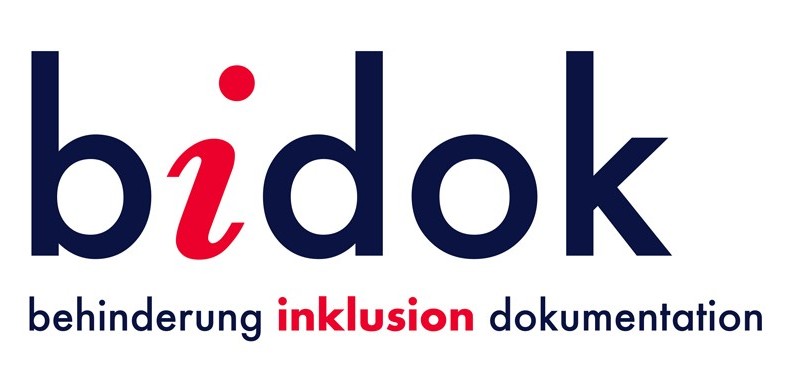Sentiments, concerns and attitudes towards inclusive education – A comparison between teacher education students at the University of North Carolina (Charlotte, USA) and the University of Education (Ludwigsburg, Germany)
Schlagwörter:
Einstellungen zur InklusionAbstract
Internationally there has been a great deal of research since the 1990s related to the question of how pre-service and in-service teachers think about the “new task” of dealing with diversity and inclusion in schools and classrooms. Many surveys have considered the influence of attitudes towards inclusive education of teachers for successful practice, as they are relevant action-regulating factors and influence perceptions (Beuse 2015, 55). It is not unequivocally certain, “how far on an individual basis the extent of a discrepancy between expressed attitudes and the actual action can be considered” (Kunz et al. 2010, 84), but it is believed, that there is a positive correlation between attitudes and action. The following article is trying to give a brief insight into the development of inclusion and inclusive education in the teacher education programs in Germany and the United States, with a focus on Baden-Württemberg and North Carolina. Based on this contextual framework, a comparative survey that took place in summer 2015 at two teacher education institutions – University of Education Ludwigsburg and University North Carolina in Charlotte – will be introduced. The idea of this survey is to compare the effects of different curriculum changes and programs on the sentiments, concerns and attitudes of teacher education students at both institutions.
Literaturhinweise
Council for Exceptional Children. (2012). Council for Exceptional Children Initial Preparation Standards. Retrieved December 1, 2015, from http://www.cec.sped.org/.
Council for Exceptional Children. (2008). What every special educator must know: Ethics, standards, and guidelines (6th ed.). Arlington, VA: Author.
Brownell, M. T., Ross, D. D., Colon, E. P., & McCallum, C. L. (2005). Critical features of special education teacher preparation: A comparison with general teacher education. The Journal of Special Education, 38, 242–252.
Feyerer, Ewald et al. (2013): Inklusive Bildung. Einstellungen und Kompetenzen von Lehramtsstudierenden und LehrerInnen für die Umsetzung inklusiver Bildung. Deutsche Version SACIE 2013 & TEIP 2013. Unveröffentlichtes Manuskript.
Feyerer, Ewald/ Dlugosch, Andrea/ Prammer-Semmler, Eva/ Niedermair, Claudia/ Hecht, Petra (2014): Einstellungen und Kompetenzen von LehramtstudentInnen und LehrerInnen fu?r die Umsetzung inklusiver Bildung. Forschungsprojekt BMUKK-20.040/0011-I/7/2011. Endbericht, April 2014. URL: http://ph-ooe.at/fileadmin/Daten_PHOOE/Inklusive_Paedagogik_neu/Sammelmappe1.pdf (Download 1.2016)
Forlin, Chris (2010): Teacher education for inclusion. Chapter 11. In: Rose, Richard (Ed.): Confronting obstacles to inclusion: international responses to developing inclusive education. New York : Routledge. 155-169
Deutsches Institut für Menschenrechte (Ed.) (2014): Inklusive Bildung: Schulgesetze auf dem Pru?fstand. Authors: Sven Mißling / Oliver U?ckert. URL: http://www.institut-fuer-menschenrech-te.de/uploads/tx_commerce/Studie_Inklusive_Bildung_Schulgesetze_auf_dem_Pruefstand.pdf. (Download 1.2016)
Gable, R. A., & Hendrickson, J. M. (2000). Teaching all the students: A mandate for educators. In J. S. Choate (Ed.), Successful inclusive teaching: Proven ways to detect and correct special needs. (pp. 2-17). Boston: Allyn and Bacon.
Gerber, Michael M. (2012): Emerging issues in teacher education for inclusion in the United States. In: Forlin, Chris: Future directions for inclusive teacher education: An international perspective. New York, NY, Routledge. 71-79
Hardman, M. L., & Nagle, K. (2004). Public policy: From access to accountability in special education. In A. M. Sorrells, H. J. Rieth & P. T. Sindelar (Eds.), Critical issues in special education: Access, diversity, and accountability. (pp. 277-292). Boston: Pearson.
Hehir, T. (2006). New direction in special education: Eliminating ableism in policy and
practice. Harvard Education Press: Cambridge, MA.
Katsiyannis, A., Yell, M. L., & Bradley, R. (2001). Reflections on the 25th anniversary of the individuals with disabilities education act. Remedial & Special Education, 22, 324-339.
Kunz, André/ Luder, Reto/ Moretti, Marta (2010): Die Messung von Einstellungen zur Integration (EZI). In: Empirische Sonderpädagogik, 2. Jg./ Heft 3, 83-94
Merz-Atalik, Kerstin (2014): Lehrer_innenbildung für Inklusion – „Ein Thesenanschlag “. In: Schuppener, Saskia et al. (Hrsg.): Inklusion und Chancengleichheit. Diversity im Spiegel von Bildung und Didaktik. Klinkhardt: Bad Heilbrunn, 266-277
Merz-Atalik, Kerstin & Franzkowiak, Thomas (2011): Poster zur Präsentation bei der Abschlußveranstaltung des European Agency Projektes „Teacher Education for Inclusion“ in Brüssel. Unveröffentlicht.
O’Brien, C. & Beattie, J.R. (2011). Teaching students with special needs: A guide for future
educators. Dubuque, IA: Kendall Hunt.
Olson, J. L., & Platt, J. C. (2004). Teaching children and adolescents with special needs (4th ed.). Upper Saddle River, New Jersey: Pearson.
Powell, Justin W. (2011): Barriers to Inclusion. Special Education in the United States and Germany. Yale Series in Sociology. Boulder, CO: Paradigm Publishers
Pugach, Marleen C./Blanton, Linda P. (2009): A framework for conducting research on collaborative teacher education. Teaching and Teacher Education 25. 575-582
Sharma, Umesh/ Loreman, Tim/ Forlin, Chris (2011): Measuring teacher efficacy to implement inclusive practices. In: Journal of Research in Special Educational Needs, Heft 12, 12-21.
Smith, J.D. (2004). The historical contexts of special education: Framing our
understanding of contemporary issues. In A. M. Sorrells, H. J. Rieth & P. T. Sindelar (Eds.), Critical issues in special education: Access, diversity, and accountability. (pp. 1-15). Boston: Pearson.
Stayton, V.D. /McCollum, J. (2002): Unifying general and special education: What does the research tell us? Teacher Education and Special Education 25. 211-218
UN United Nations Committee of the rights of persons with disabilities (2015): Concluding observations on the initial report of Germany. Adopted by the Committee at its thirteenth session (25 March–17 April 2015). URL: http://daccess-dds-ny.un.org/doc/UNDOC/GEN/G15/096/31/PDF/G1509631.pdf?OpenElement (Download 1.2016)
Yell, M. L., Drasgow, E., Bradley, R., & Justesen, T. (2004). Contemporary legal issues in special education. In A. M. Sorrells, H. J. Rieth & P. T. Sindelar (Eds.), Critical issues in special education: Access, diversity, and accountability. (pp. 16-37). Boston: Pearson.

